By Philip Carter
On 25 June the Institute headed to the north-west for IHR@Manchester, a day research workshop for early career historians and History librarians. The day was jointly organised with the John Rylands Research Institute and held in the Historic Reading Room of the magnificent John Rylands Library at the University of Manchester.
This was the second event of its kind, coming after IHR@Sheffield in March. The workshops take the Institute outside London and the south-east. Convened in partnership with history departments across the UK, the IHR@ series enables historians to gather, network, and discuss resonant themes that concern the profession.
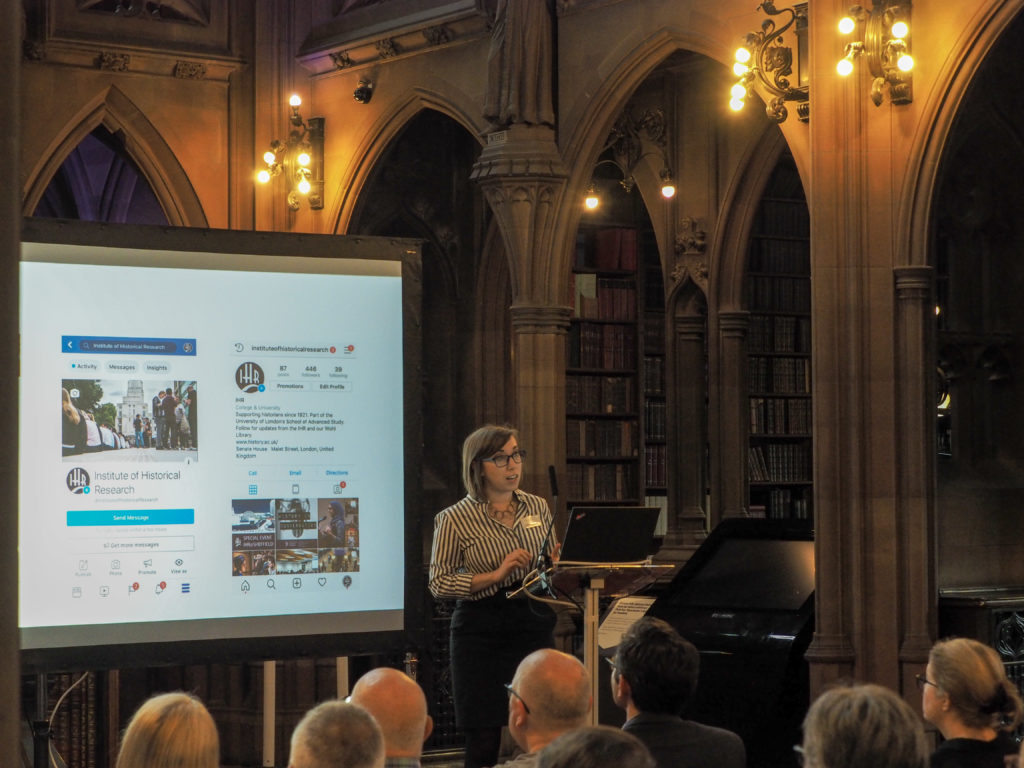
At Manchester we focused on two principal subjects.
For the History librarians, IHR Librarian, Matt Shaw, ran sessions on needs and priorities in the context of ever-expanding digital provision, reductions in subject specialist staff, and changing study practices by students.
For ECRs there were sessions on ‘getting published’ with Emma Brennan and Meredith Carroll from Manchester University Press. As senior history and journal commissioning editors, Emma and Meredith demystified the publishing process, and offered advice on choosing and working with an academic publisher. Topics covered included the differences between PhD thesis and first monograph, finding the right publisher, a good book proposal, writing a first journal article, peer review, and Open Access for historians.
Alongside these parallel strands, IHR@Manchester also offered an hour’s ‘research speed dating’. Hosted by Hannah Elias, the Institute’s academic engagement officer. This session enabled attendees and Manchester historians to meet and discuss shared research questions, regardless of the subjects we each study.
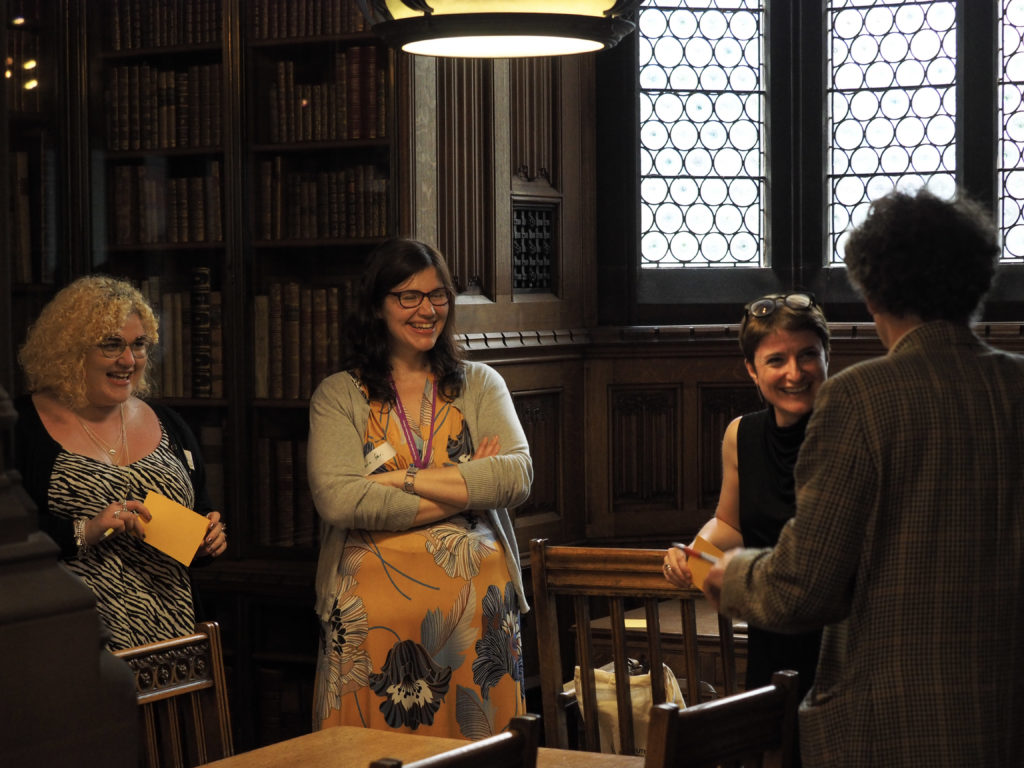
The Manchester workshop concluded with a panel discussion on ‘Truth, lies and history: being a historian in the age of fake news’. Hosted by Hannah Barker, director of the John Rylands Research Institute, this session brought together four historians working both in the field of propaganda and communication, and in new forms of writing that embrace historians’ subjectivity in and integrity to works of historical ‘truth-telling’.
The panellists — Jo Fox, director of the IHR, James Crossland (Liverpool John Moores), Charlotte Faucher (Manchester) and Sarah Knott (Indiana) — considered earlier instances of fake news, what we can learn from these, and why our current environment (driven by algorithmic online distribution) poses distinctive challenges of speed and scale.
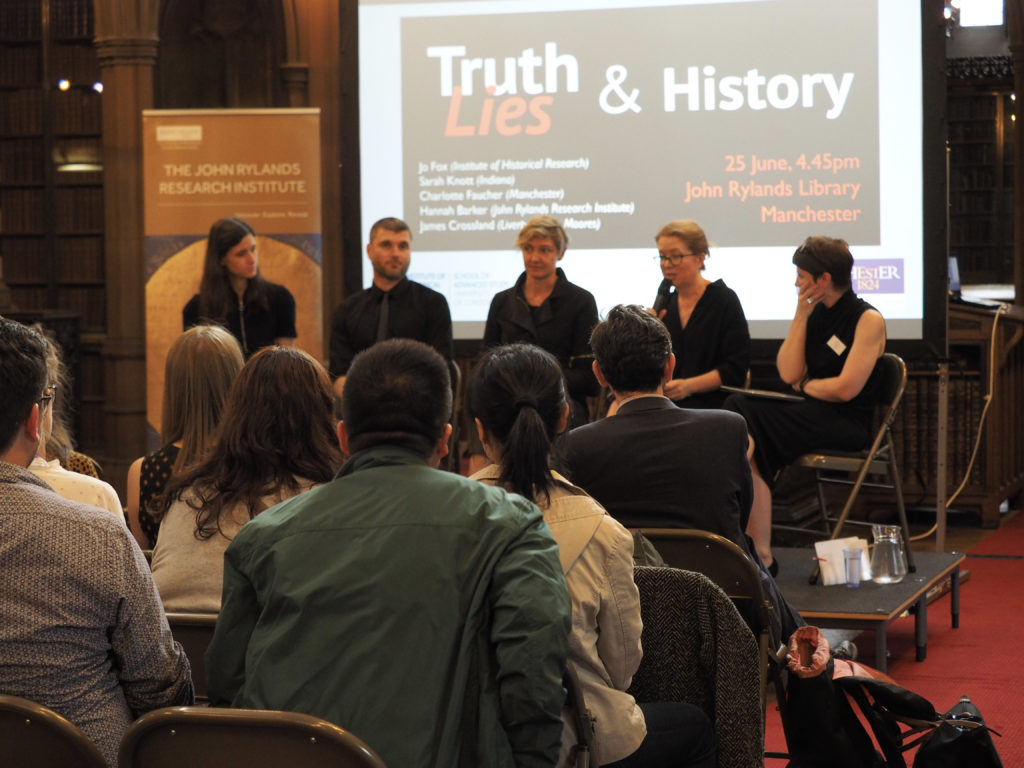
By taking the IHR to departments across the UK, events like ‘@Manchester’ are central to the Institute’s new strategy: to serve as the national centre for history for the historical community. In partnership with research centres such as the John Rylands, we’re also able to identify to common initiatives and interests between institutes. These include our extensive primary collections, digital research initiatives and methods training.
Events like this are also chance to show that the Institute is much more than its London base; and to demonstrate how the IHR facilitates national and international research via its fellowship programme and digital resources, including British History Online and the Bibliography of British and Irish History.
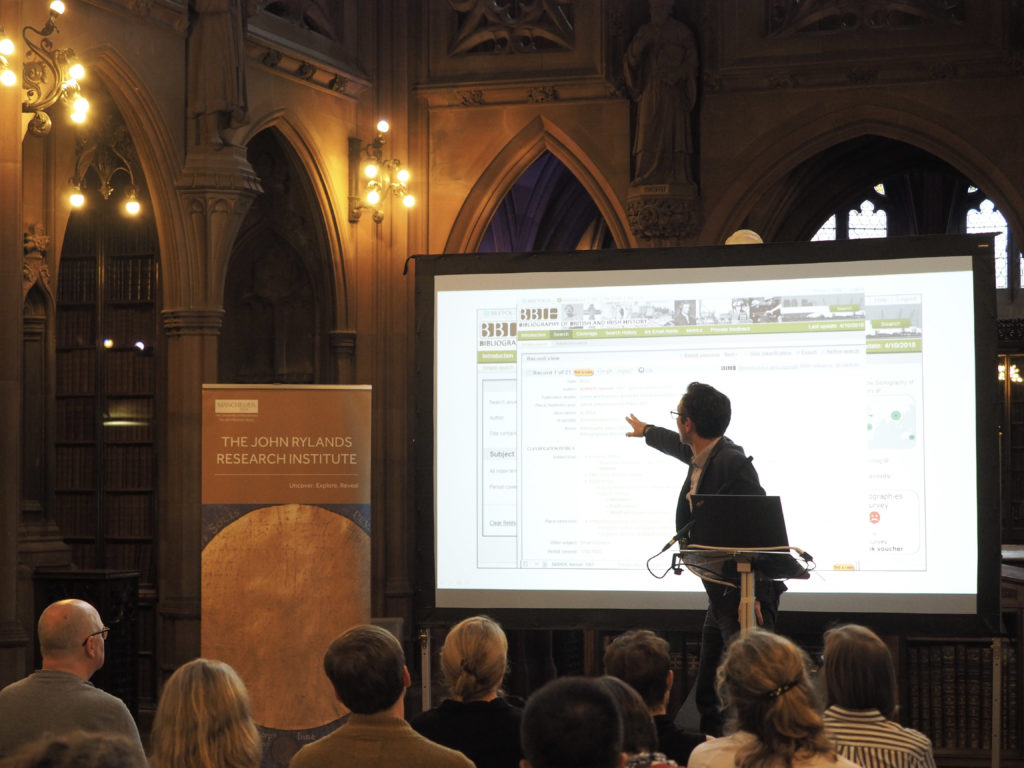
Following Sheffield and Manchester, our intention is next to visit Belfast in the autumn, and to plan a further series of IHR@ day workshops in 2020. If you’re interested in being our partner for one of these, please do get in touch.
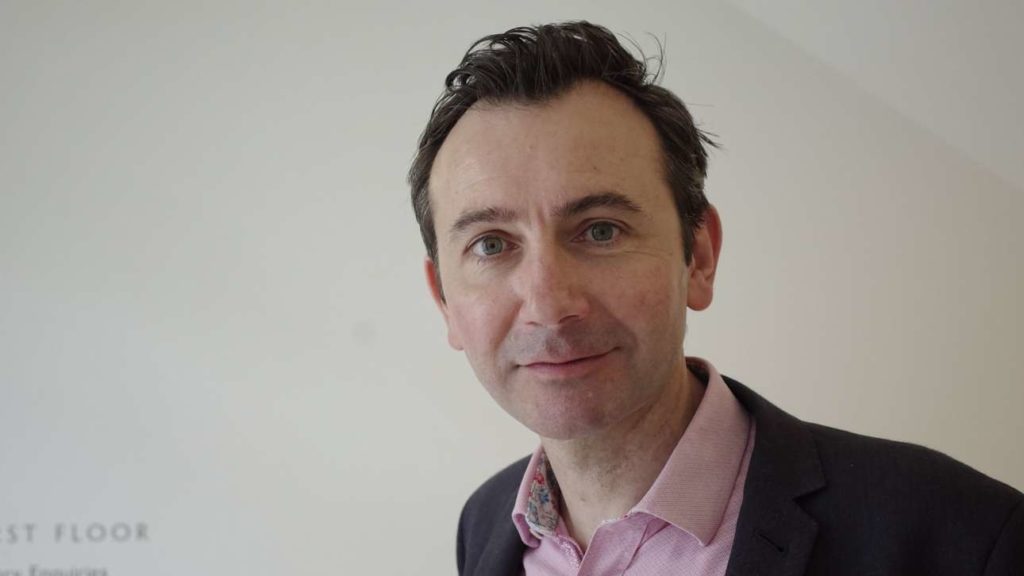
Philip Carter is Head of Digital at the IHR

